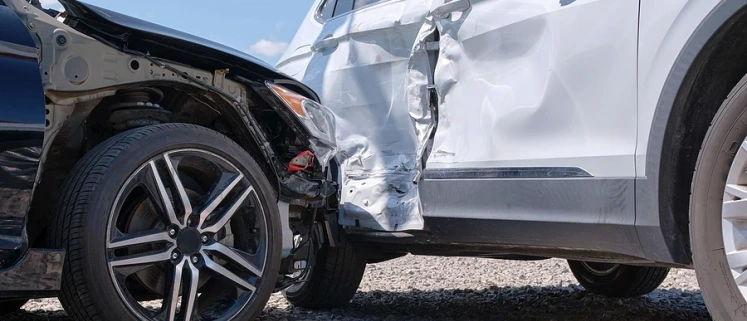Steps to Take Immediately After a Car Accident in Pennsylvania
Being involved in a car accident is a stressful and often overwhelming experience. In the moments following a crash, confusion and adrenaline can make it difficult to think clearly. However, taking the right steps can help protect your legal rights and strengthen any potential injury claim. If you have been in an accident on Pennsylvania roads, here are the key actions you should take immediately.
Check for Injuries and Call for Help
Your first priority is safety. If you or anyone else is injured, call 911 right away. Even if injuries seem minor, seeking medical attention is critical. Some injuries, such as whiplash or internal bleeding, may not be immediately noticeable but can worsen over time.
If you are able, check on passengers in your vehicle and others involved in the crash. If someone is seriously hurt, avoid moving them unless there is an immediate danger, such as a fire or heavy traffic. Emergency responders are trained to provide proper medical care and transport injured individuals safely.
Move to a Safe Location if Possible
If your car is in a hazardous location, such as an intersection or highway, and it is safe to do so, move it to the roadside. Turn on your hazard lights to warn other drivers. If moving the vehicle isn’t an option, remain inside with your seatbelt fastened until assistance arrives.
Contact Law Enforcement
In Pennsylvania, you must report an accident to the police if it results in injury, death, or significant property damage. When officers arrive, provide a clear and factual account of what happened, but avoid admitting fault. The police report will be valuable if you need to file an insurance claim or take legal action.
If police do not respond to the scene, you may need to file a crash report with the Pennsylvania Department of Transportation (PennDOT). This is particularly important if the accident involves injuries or major damage.
Gather Evidence at the Scene
If you are physically able, collect as much information as possible. Take photographs of the vehicles involved, any visible injuries, road conditions, skid marks, traffic signals, and any other relevant details. These images can serve as important evidence later.
Exchange information with the other driver, including their name, contact details, driver’s license number, and insurance information. If there are witnesses, ask for their contact details as well. Their statements may help clarify what happened.
Seek Medical Attention as Soon as Possible
Even if you feel fine after the accident, it is important to get checked by a doctor. Some injuries take hours or even days to manifest. Seeking prompt medical care not only ensures your well-being but also creates a record of your injuries, which is essential for any insurance or legal claim.
Follow your doctor’s recommendations and attend all necessary follow-up appointments. Delaying treatment can make it harder to prove that your injuries resulted from the accident.
Notify Your Insurance Company
Report the accident to your insurance provider as soon as possible. Be honest but stick to the facts. Avoid speculating about fault or giving recorded statements until you fully understand your situation. Insurance adjusters may try to use your words against you to minimize their payout.
If the other driver’s insurance company contacts you, do not feel pressured to answer their questions or accept a settlement right away. Their goal is to protect their bottom line, not to ensure you receive fair compensation.
Avoid Discussing the Accident on Social Media
It is tempting to share details about the crash online, but doing so can hurt your case. Insurance companies and opposing attorneys may use your posts, comments, or even photos to challenge your claim. Until your case is resolved, it is best to keep accident-related information private.
Keep a Record of Everything
Start a file with all documents related to the accident, including medical records, police reports, insurance communications, and repair estimates. Keeping everything organized can make the claims process smoother and help your attorney build a strong case if legal action becomes necessary.
Consult a Pennsylvania Car Accident Lawyer
If you have suffered injuries, are facing high medical bills, or are struggling with an uncooperative insurance company, speaking with a lawyer can help. A personal injury attorney can evaluate your case, negotiate with insurers, and pursue compensation for medical expenses, lost wages, and pain and suffering.
Legal deadlines apply to car accident claims in Pennsylvania. The statute of limitations for personal injury cases is typically two years from the accident date. Waiting too long to seek legal guidance could jeopardize your ability to recover damages.
Conclusion
Recovering from a car accident is challenging, but you do not have to navigate the legal process alone. At Kingbird Legal, we are dedicated to protecting the rights of injured drivers and passengers across Pennsylvania. If you have questions about your case or need guidance on the next steps, contact us today for a free consultation. Let us help you pursue the compensation you deserve.




